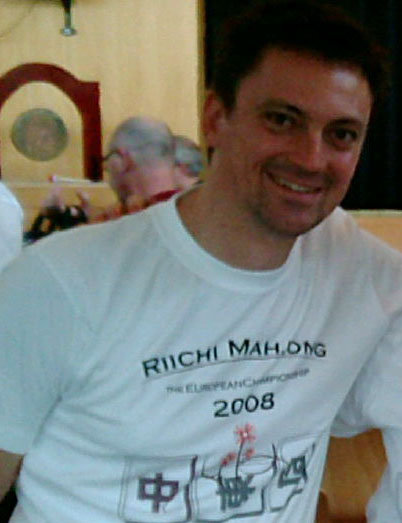A Game of Mistakes: My lesson from Masters (part 1)

 It’s sometimes said of poker and I think it’s true of Mahjong too: it’s a game of minimizing your mistakes. And from that it follows also, that you want to capitalize on your opponents’ mistakes. Well sure, that seems pretty obvious, so how to really make use of this idea? The key I think is in the second part, other people’s mistakes.
It’s sometimes said of poker and I think it’s true of Mahjong too: it’s a game of minimizing your mistakes. And from that it follows also, that you want to capitalize on your opponents’ mistakes. Well sure, that seems pretty obvious, so how to really make use of this idea? The key I think is in the second part, other people’s mistakes.
I’ve said it before and I’ll say it again, these games are not really that hard. A little bit of experience and we should get pretty good at making the correct moves and avoiding the obvious mistakes. Poker: don’t bet your whole stack on Ace 4 suited; don’t pay too much to see the river holding just pocket 6’s with 5 7 9 9 and 3 clubs already on the board. Mahjong: don’t pon or chow if you have no hand point; generally, choose open ended waits instead of closed ones; throw safe tiles after another player reaches. For anyone who continues playing much for any length of time these ideas become second nature pretty quickly.
But once we all know these basic ideas, how do we get a leg up on each other again? In a game of 4 strong players, of course everyone knows what mistakes to avoid. If everyone is just playing optimally all the time, then the game just reverts back to a simple game of luck. What to do…What to do…how about: we need to create other people’s mistakes.
I did this in a big poker tournament a while ago and of course got chastised roundly for my play until I stacked so many players there were none of them left to keep complaining. Earlier I’d gotten caught raising with marginal hands like Ace4 suited or pocket 6’s and there was so much discussion about what an idiot I was that when I raised all in with pocket kings I got a player to call with just pocket jacks. It wasn’t a push or fold situation either as we both had more than 100 big blinds and were the two big stacks at the table; clearly a mistake on his part to have risked his whole stack on that seemingly worthwhile hand. He must have thought his jacks were good because the guy he was playing against was too dumb to be beating jacks there. Ouch, big mistake. I outplayed the crap out of that guy and I let everyone know it as I started taking their stacks too.
How to help our opponents make mistakes in Mahjong? Well one trick I think most of us have probably tried before is using “piano keys” or “suji” in Japanese. Like I said before, we should choose open ended waits over closed but if we end up in a situation with a bad wait, one way to get a player to throw our winning tile is to have the piano keys tile in our discards. For example, when I discarded the 6 of dots yesterday, one player took that as a sign that the 3 was safe and threw to my waiting 2-4 of dots, but actually it was part of a Simples, 3 Colored Runs, Lucky Dragon combination, on my turn as dealer. Ouch. Big mistake. I outplayed the crap out of that guy and I let everyone know it as I started taking their stacks too.
After my experience at the final table of Masters this week, I think maybe my above mentioned poker tactic may be just as effective in Mahjong too. I had played against Imazato and Asakura in earlier rounds so I knew they were good solid players and I was going to need to play good Mahjong to beat them. The other guy at the final table was this kind of goofy weirdo who chowed and ponned every other tile in a crackly voice which was always just a little too loud. I won the first game and it seemed I was on my way to my first tournament title. Wait a minute, hold the phones!
Look forward to the conclusion of Garthe’s experience at masters next week on ReachMahjong.com!
Garthe Nelson is Grade 2 in the Japan Professional Mahjong League. You can catch him as a featured Pro on Mahjong Fight Club.

